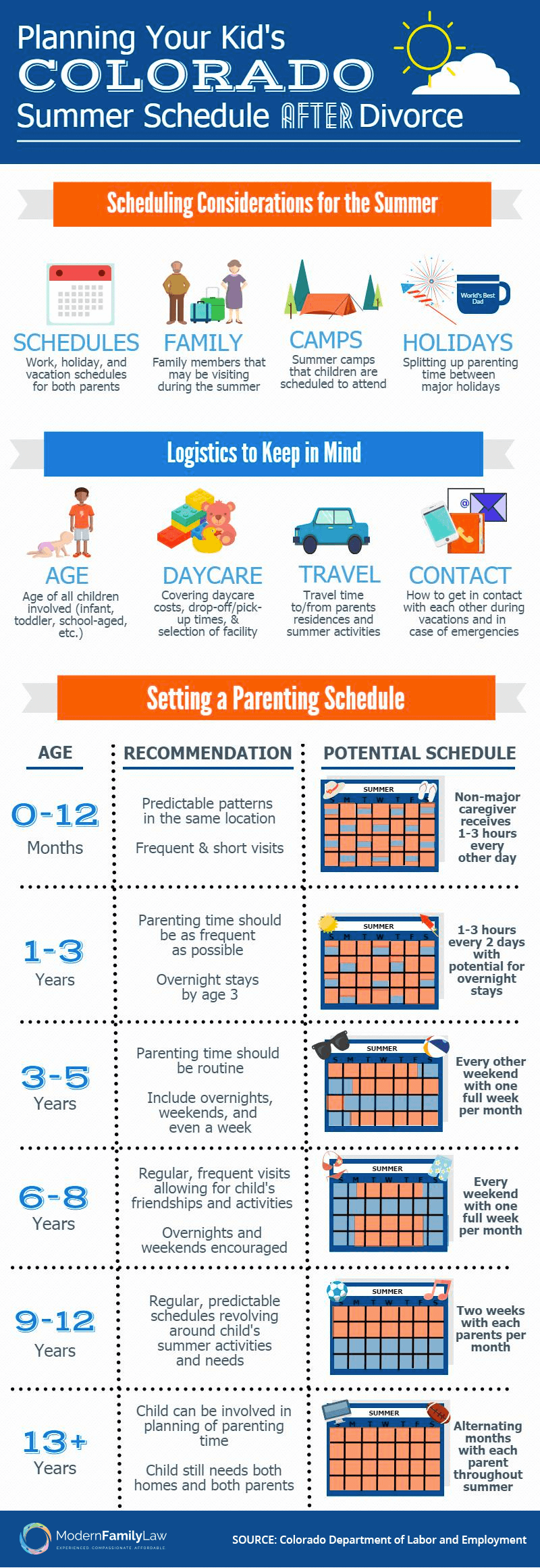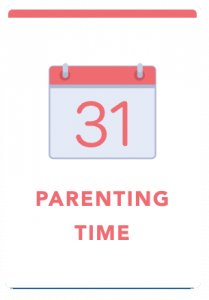Finding the Right Schedule
Creating the best parenting time schedule for yourself and your former spouse is tricky, especially during the summer months. The more flexible you can be with the schedule, the better.
“First and foremost, don’t fight with the other parent over the schedule or last-minute changes,” Wilbourn said. “That creates the most stress for kids and messes up their summer.”
Baumel explained the importance of being as kind as you can with the other parent to help ease stress. “Try to be thoughtful and kind in working with the other parent, and typically the more thoughtful and kind they will be in return,” she said.
Since you know your child and their needs better than anyone else, it’s best to come up with a summer schedule together, rather than getting the court involved. A parenting plan created jointly between both parents is more likely to be successful and followed than one mandated by a judge.
If you and your former spouse are unable to come to an agreement on a summer parenting plan, the court may assign a third-party Child and Family Investor (CFI) or a Parental Responsibility Evaluator (PRE) to recommend a parenting time schedule based on the below criteria, as well as what is in the best interest of the child. These criteria can also be used to help you and your former spouse create a summer parenting plan.
Items to Consider
- The location of both parents and the periods of time during which each parent will have parenting time with the child
- The child’s educational needs, such as summer school or tutoring
- The child’s religious training, if any
- The child’s healthcare needs
- Finances to provide for the child’s needs
- Which parent the child will spend key summer holidays with (i.e. Father’s Day and Fourth of July)
- Any family vacations planned throughout the summer
- Any other factors affecting the physical or emotional health and well-being of the child
“It’s important to remind parents that the kids didn’t vote for the divorce or conflict,” Wilbourn said. He explained that if the parents continue to have a power struggle, they will ruin these special times for their kids.
Communicating to Your Child
While you and your former spouse may be clear on the plan, it’s equally important for your kid to be aware. Kids can be surprisingly basic when it comes to their needs and want to know answers to questions like, “Where am I sleeping?” or “Where am I eating?” They will also feel much more comfortable if their questions are answered quickly. Make it clear where they will be staying and what days, when and where they will eat, how they will get to and from different activities, and more.
“The kids need to be told the plan if they are age appropriate,” Reinert said. “They need to be brought into the discussion.” She even suggested letting the child explain what they are looking for in the summer if they are old enough and considering their opinions, even if you’re not able to fully implement them.
If the children are younger, they don’t need to be told too many details, and the plan can be revolved around the parents’ schedules. Reinert suggested color-coded calendars to her clients, with the days marked in different colors for each parent. This calendar is easy for a younger child to follow. “The calendars can help them get into the rhythm of it,” she said.











